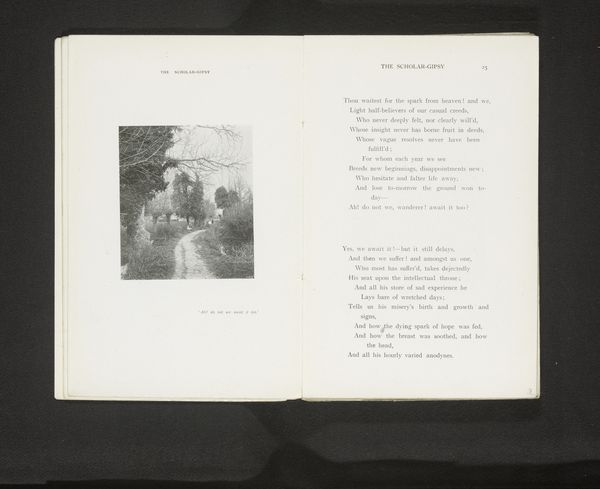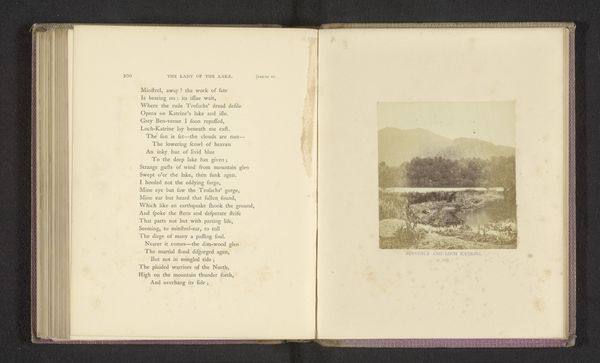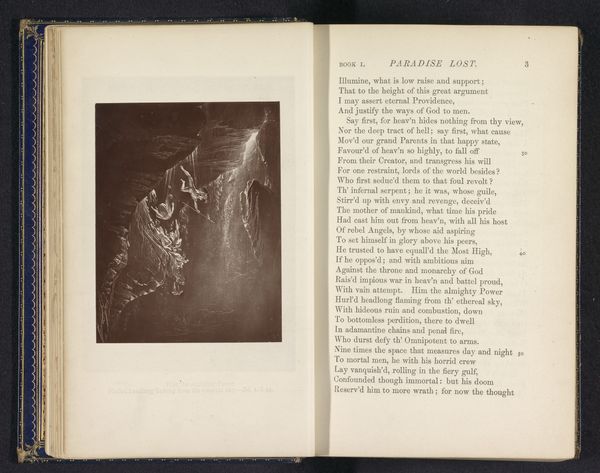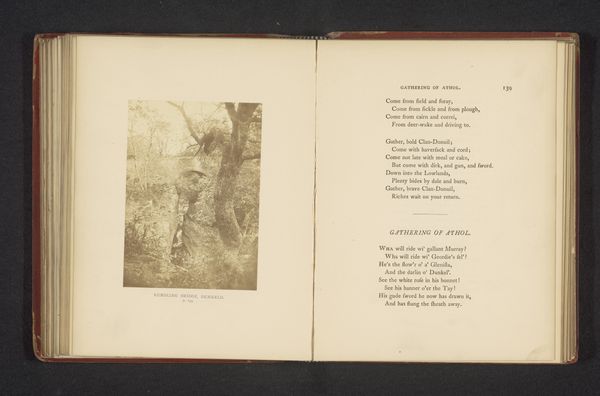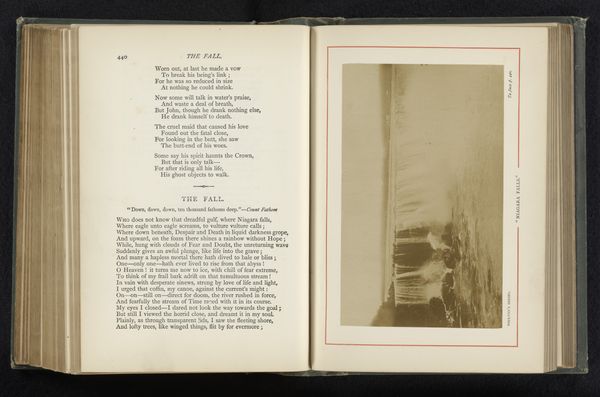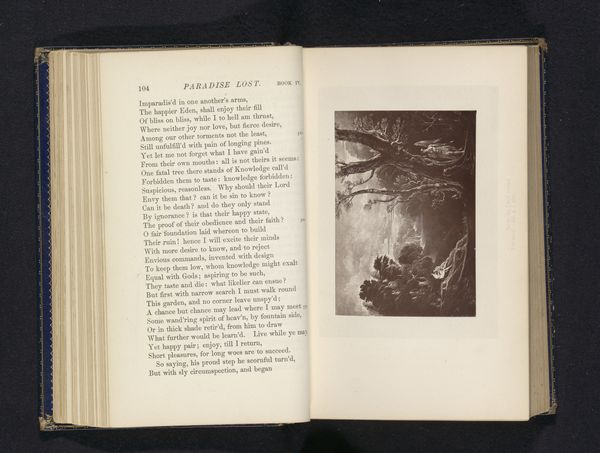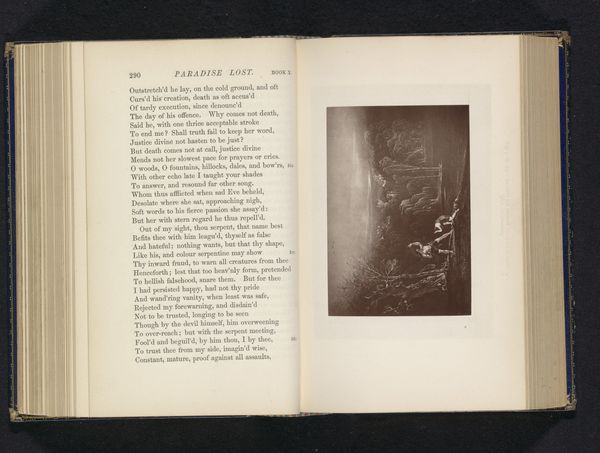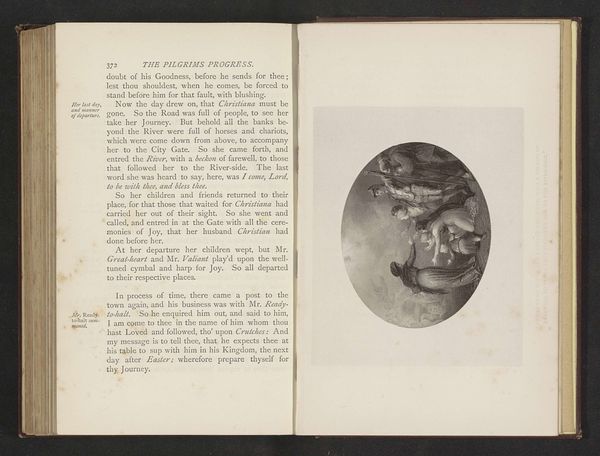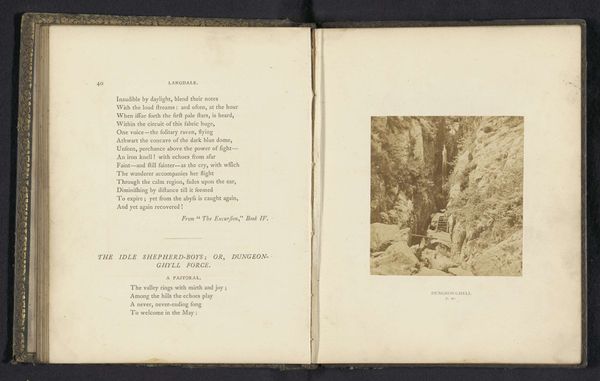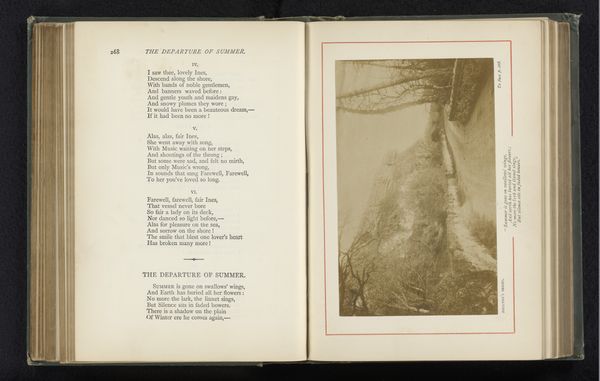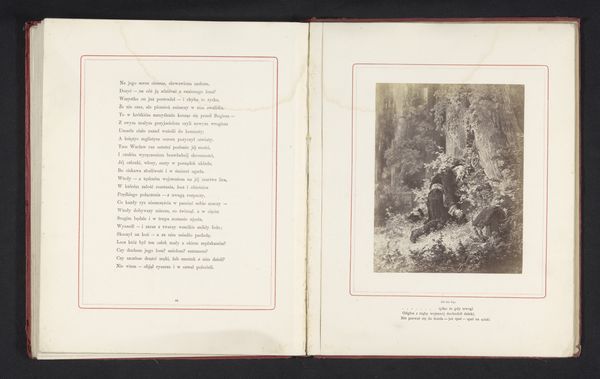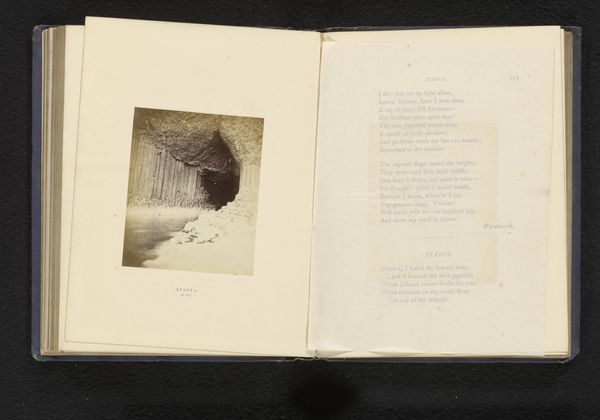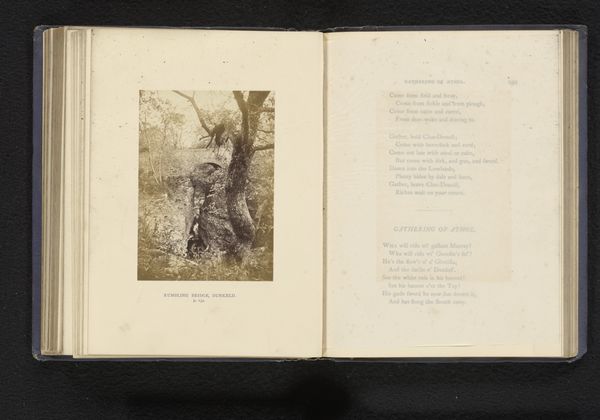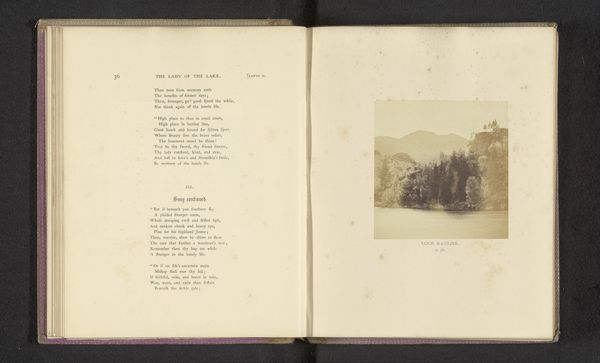
print, photography, gelatin-silver-print
# print
#
landscape
#
river
#
photography
#
gelatin-silver-print
Dimensions: height 93 mm, width 89 mm
Copyright: Rijks Museum: Open Domain
This photogravure of Glen Finglas in Scotland, was made by Thomas Ogle as an illustration for an unknown book. In the 19th century, photography gained traction as a medium to document and represent the world. Glen Finglas, with its untouched natural beauty, was a popular destination for tourists. This image reflects the Romantic movement's emphasis on the sublime power of nature, a welcome change from the grim realities of the industrial revolution. The choice of photogravure as a printing process demonstrates a nostalgia for older forms of printmaking, like etching and aquatint, at a time when new printing methods were becoming available. The imagery evokes a sense of longing for a simpler, more authentic way of life, and the untouched landscape becomes a symbol of cultural and national identity, but whose identity does it reflect? To understand the social forces that shaped this image, we might consult travel guides, landscape paintings, and popular literature from that time. This would give us more of an insight into its cultural significance.
Comments
No comments
Be the first to comment and join the conversation on the ultimate creative platform.
